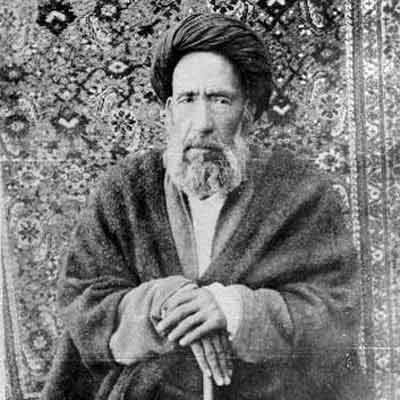Ayatollah Modarres: a role model for freedom-seekers

TEHRAN – Throughout Iranian history, many have dedicated their lives to the nation's freedom, independence, and the rule of law against tyranny. Ayatollah Seyyed Hassan Modarres was one such clergyman who entered politics to champion the rights of the oppressed Iranian people.
An early 20th-century lawmaker, he championed the rule of law, national independence, and freedom from foreign influence.
Modarres was renowned for his bravery, incorruptibility, and unwavering support for a truly constitutional government.
Modarres opposed the Reza Shah Pahlavi regime's reliance on foreign powers, defending Iranian national interests.
The role of Modarres in advancing Iran’s constitutional Revolution
Widely considered the most prominent supporter of Iran's Constitutional Revolution (1905-1911), this courageous cleric championed the reduction of Qajar monarchical power in favor of popular sovereignty.
Modarres joined the revolutionaries at the outset of the constitutional movement, fighting against despotism. Having obtained scholarly and religious qualifications, he was nominated by Maraja (religious authorities) in Najaf as one of the five prominent Ulema to enter the second term of the National Consultative Assembly (parliament).
When he was a lawmaker, Modarres fought against Russian and British intervention in Iran’s internal affairs. His political life coincided with World War I when he untiringly mobilized the nation to fight the Russian troops and prevent Iran's partition.
The cleric led the opposition against the 1919 Anglo-Persian Agreement negotiated between Vosuq al-Dowleh, the Prime Minister of Iran, and the British Lord Curzon in 1919. If ratified, the agreement would have granted the British a paramount position of control over the financial and military affairs of Iran. He fought relentlessly against ratifying the shameful contract and through his efforts, it was eventually abolished.
During his struggle, the rulers tried to bribe him in a bid to silence him but their attempts proved to be futile. Modarres lived a modest life, which added to his popularity among the people.
He fought the despotism of Qajar monarchs and that of the first Pahlavi Shah, Reza Shah.
Fight against Reza Shah's tyrannical regime
In the fourth National Assembly, Modarres led the majority. During the fifth term, he led the minority faction, actively opposing Reza Khan's policies and exposing his deceptive republicanism in the early 1920s.
Modaress openly criticized Reza Shah's despotic rule, for which he was imprisoned. A few years after a November 1926 assassination attempt against him, Modarres was expelled to Khaf and later to Kashmar in northeast Iran.
After nearly a decade of imprisonment in Kashmar, Modarres was ultimately murdered—poisoned, then strangled during prayer—by Reza Shah's agents on December 1, 1937, at age 67.
In Iran, the anniversary of his martyrdom is observed as Majlis Day (Parliament Day).
A role model for future generations
Modarres played a big role in advancing the constitutional reforms. He had influence over other political leaders after him. He never gave in to pressures from the despotic rulers and fought to the end.
He played a major role in abolishing the proposed 1919 agreement that would have transformed Iran into a British protectorate.
He inspired Ayatollah Ruhollah Khomeini better known as Imam Khomeini who hailed his parliamentary role. Imam Khomeini used to praise Modarres for defending Islamic values and criticizing the Reza Shah regime while he was a lawmaker.
The late leader of the 1979 Islamic Revolution used to admire Ayatollah Modarres for his good knowledge of the Islamic disciplines and his command over political affairs.
He played a crucial role at a very sensitive juncture of history and is remembered by the Iranian people as a great religious scholar and politician.
Ayatollah Modarres has shown the path toward freedom by means of Islamic teachings. He still inspires many across the world who want to live a dignified life free from despotism and oppression.
“The most outstanding characteristic of Martyr Modarres was that no intimidation, threat, bribery, or deception had an impact on him,” the current Leader of the Islamic Revolution Ayatollah Seyyed Ali Khamenei said about Modarres in a speech back in 2021, after describing him as the most knowledgeable religious scholar ever.
